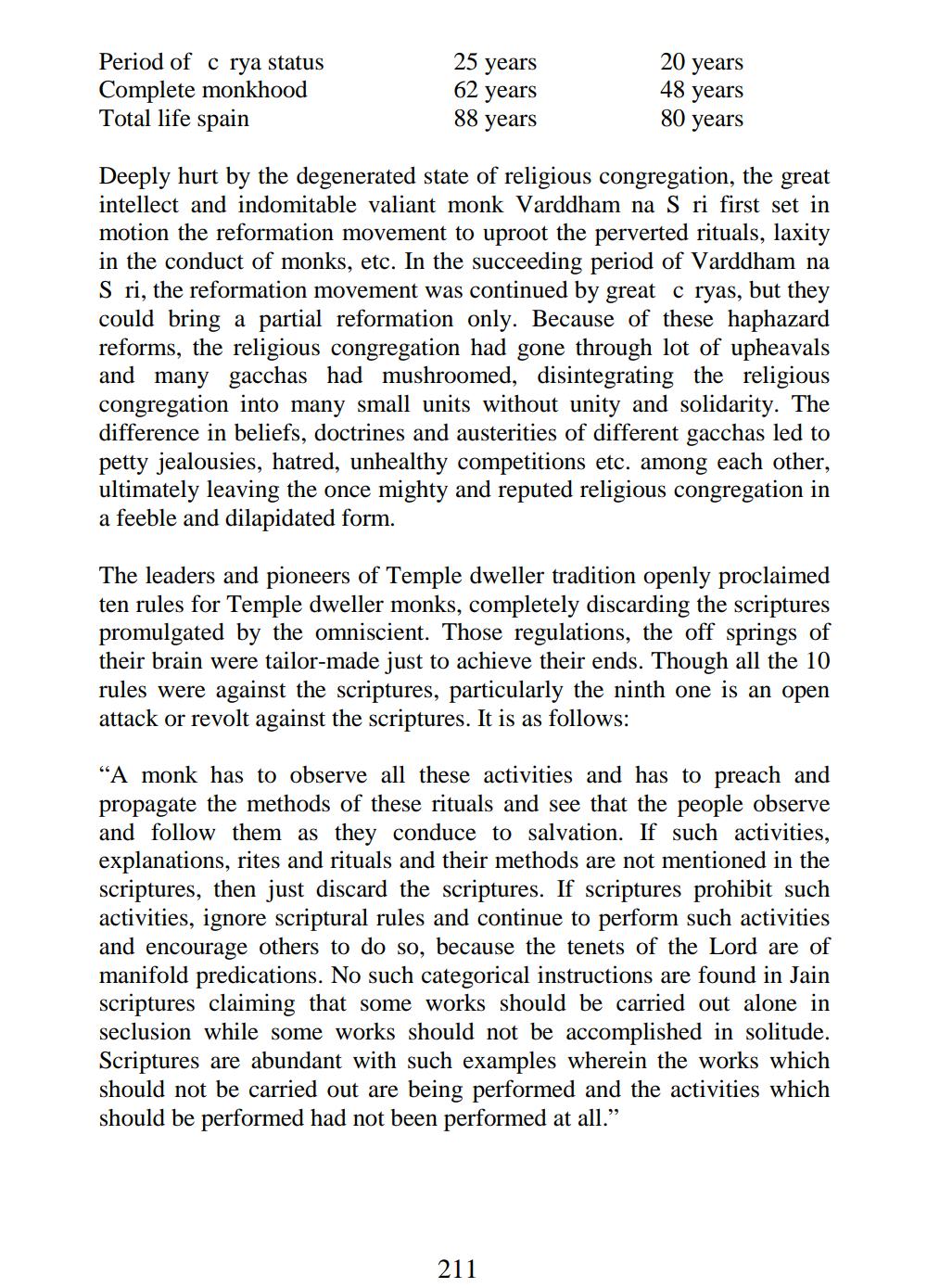________________
Period of crya status Complete monkhood Total life spain
25 years 62 years 88 years
20 years 48 years 80 years
Deeply hurt by the degenerated state of religious congregation, the great intellect and indomitable valiant monk Varddham na Sri first set in motion the reformation movement to uproot the perverted rituals, laxity in the conduct of monks, etc. In the succeeding period of Varddham na S ri, the reformation movement was continued by great c ryas, but they could bring a partial reformation only. Because of these haphazard reforms, the religious congregation had gone through lot of upheavals and many gacchas had mushroomed, disintegrating the religious congregation into many small units without unity and solidarity. The difference in beliefs, doctrines and austerities of different gacchas led to petty jealousies, hatred, unhealthy competitions etc. among each other, ultimately leaving the once mighty and reputed religious congregation in a feeble and dilapidated form.
The leaders and pioneers of Temple dweller tradition openly proclaimed ten rules for Temple dweller monks, completely discarding the scriptures promulgated by the omniscient. Those regulations, the off springs of their brain were tailor-made just to achieve their ends. Though all the 10 rules were against the scriptures, particularly the ninth one is an open attack or revolt against the scriptures. It is as follows:
“A monk has to observe all these activities and has to preach and propagate the methods of these rituals and see that the people observe and follow them as they conduce to salvation. If such activities, explanations, rites and rituals and their methods are not mentioned in the
res, then just discard the scriptures. If scriptures prohibit such ctivities, ignore scriptural rules and continue to perform such activities and encourage others to do so, because the tenets of the Lord are of manifold predications. No such categorical instructions are found in Jain scriptures claiming that some works should be carried out alone in seclusion while some works should not be accomplished in solitude. Scriptures are abundant with such examples wherein the works which should not be carried out are being performed and the activities which should be performed had not been performed at all.”
211




